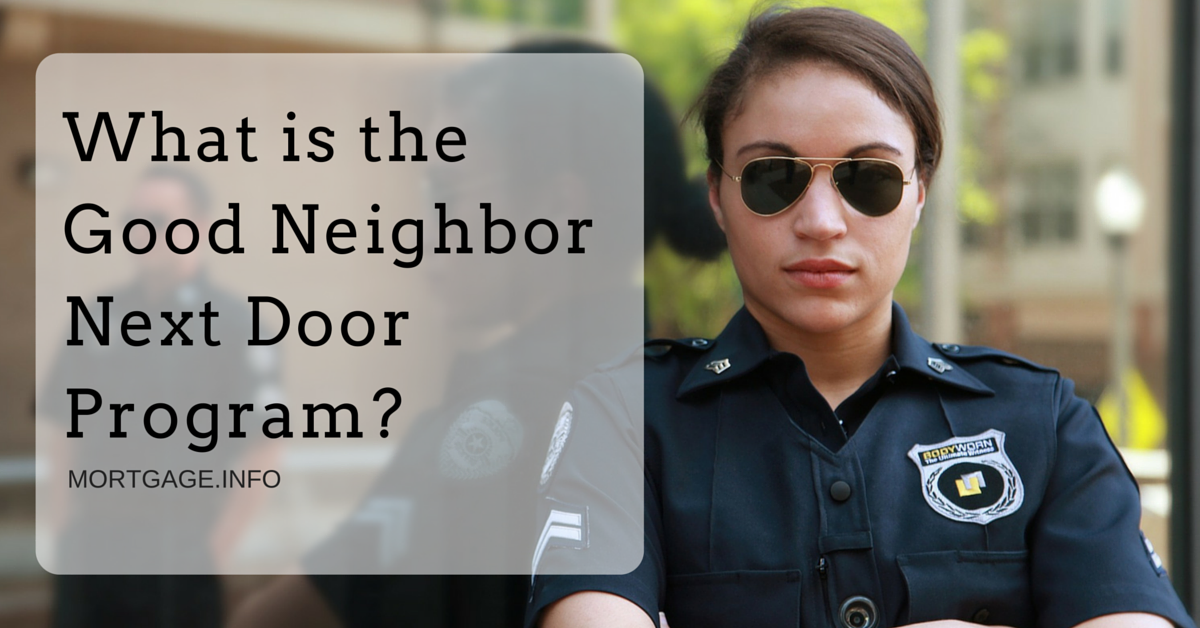
When it seems like houses are just too expensive and you think you will never own one, there is a solution if you work within the community. Certain professions, such as police officers, EMTs, firefighters, and teachers are able to purchase a home in the community in which they work for 50 percent off the sales price. This does not apply to every home – there may only be a few of these homes available in each county, but they become available as often as HUD sees fit. If you qualify for this program, it is well worth securing the help of a HUD approved realtor to assist you in finding the right home for you.
The Good Neighbor Next Door Program (GNND) Guidelines
The GNND program is one that helps build communities back up that might have been hit hard by foreclosures. HUD calls the areas “revitalization” areas, which basically means the values have dropped in these areas and the homes, as well as the community, need some work. The homes that become eligible were once financed with an FHA mortgage which the previous owner defaulted on and the bank filed a claim with the FHA. This forced the FHA to pay the bank the outstanding amount on the mortgage and take possession of the home. Now they are trying to get rid of it, which is why certain homes are offered at 50 percent off for the people in the above professions.
The Financing
If you are eligible for the GNND program and have found a home, you have to have financing, unless you are going to pay cash for the home. The financing you secure can be any type including FHA, VA, and conventional. You do not have to secure strictly FHA financing despite the fact that it is a HUD home. The down payment required is based off of whatever financing program you use and the earnest money is simply 1 percent of the full asking price with a minimum of $500 and a maximum of $2,000 allowed.
The amount you must finance is strictly 50 percent of the asking price of the home. The remaining 50 percent is a discount which is written up in a 2nd mortgage. This 2nd mortgage is silent, which means you will sign a note and mortgage, but will not be obliged to pay it unless you do not follow the rules of the program. At the end of the program, which lasts for 3 years, the secondary financing is forgiven and removed from the title for your home.
The Residency Requirements
There are strict requirements regarding how long you must live in the home under the Good Neighbor Next Door program. The total length of time is 3 years. This means that the home must be your primary residence for that entire time and you are not allowed to own any other homes during that 3 year period. This helps to ensure that you live in the home and maintain it, keeping up the revitalization that offering this program allows. You must certify your residency with HUD every year for the 3-year requirement to ensure that you continue to live in the home during that time. If you fail the occupancy requirements, there are penalties that you will pay, both financial and otherwise.
- You will pay 1/36th of the amount of the 2nd mortgage for every month that you leave the home prior to the 3-year requirement. For example, if you leave 6 months early, you will pay the equivalent of 1/36th of the mortgage x 6.
- HUD can penalize you by blocking you from any other federal programs, whether financial or not. They can also take more drastic measures if they can prove that you used fraudulent measures to take advantage of the program.
Where you Live
Aside from the fact that you must purchase a home that is GNND eligible, you must purchase a home within the vicinity of where you work. For example, if you are a police officer, you must purchase a home within the jurisdiction of your department or if you are a teacher, you must purchase a home within the district’s boundaries in order to be eligible. The homes that are available in the program typically are in a more run-down area that needs some community involvement as well as building up. Typically, the homes available also need plenty of work to make them livable.
Fixing the Home Up
If you find that the home is livable or is not up to your standards, you can secure FHA 203K financing, which gives you the money you need to purchase the home as well as the money to fix it up. You can make structural changes, changes to bring the house to code; and even cosmetic changes to make it look the way you like. If the home is not livable when you purchase it, you are not obliged to live there – you can live elsewhere while the work is completed.
The Good Neighbor Next Door program is a great way to get into a home and gain equity fast. Right away, you are already 50 percent ahead of the game. If you fix the home up and maintain it for the 3 years that the program exists, you could make a great profit on the home and help to build up the community. If you choose to continue to live in the home once the 3 years are up, you are more than welcome to do so – the GNND program will be over at that point, but you continue to pay your mortgage, taxes, and insurance as usual and are welcome to do with the home as you desire.
